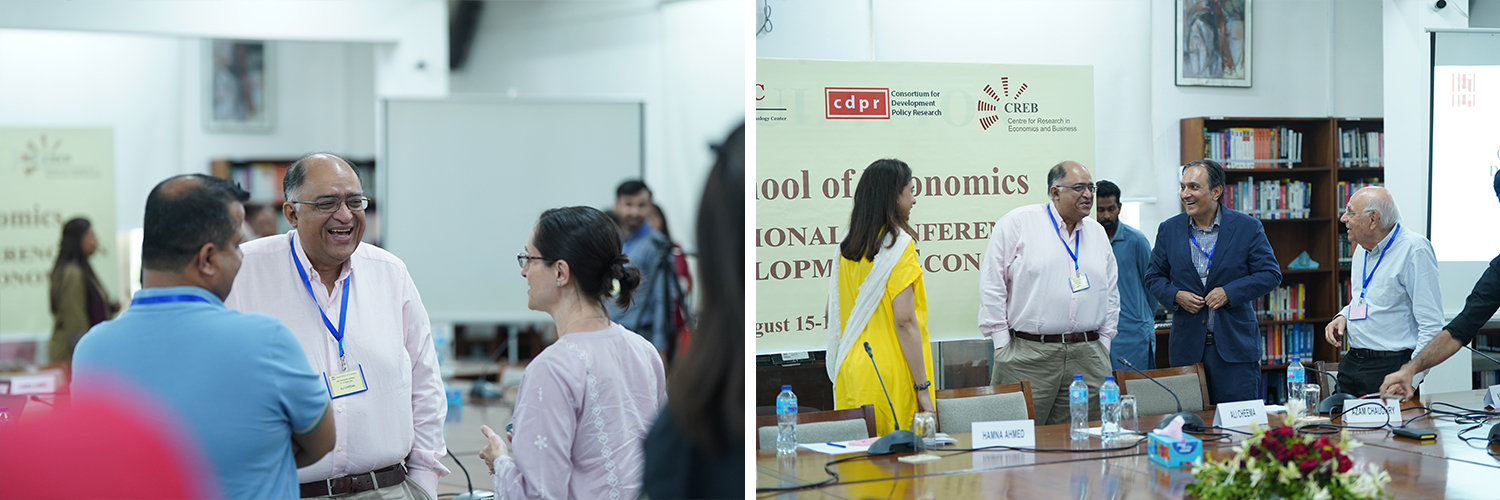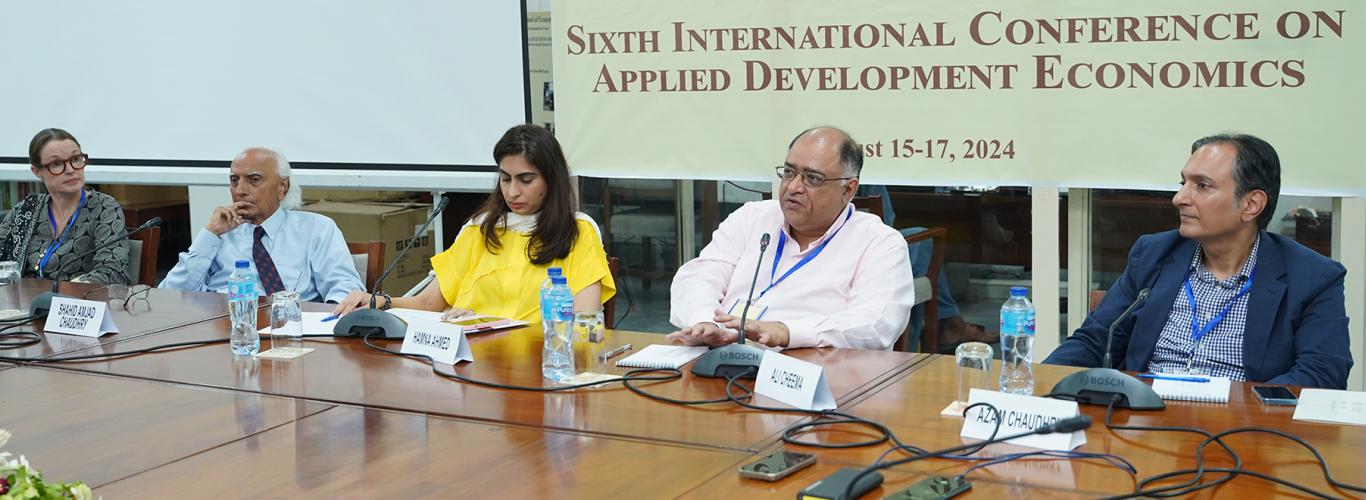VC LUMS Leads Panel Discussion on Governance at the Sixth International Conference on Applied Development Economics
The sixth International Conference on Applied Development Economics (ADE) was held from August 15 – 17 by the Centre for Research in Economics and Business (CREB) and the Innovation and Technology Centre (ITC) at the Lahore School of Economics (LSE). The three-day annual conference was held in collaboration with the International Growth Centre (IGC) Pakistan and the Consortium for Development Policy Research (CDPR). It included plenary talks and presentations from international and local researchers working in low and middle-income countries, with a focus on issues related to economic development and sustainable growth in developing contexts.
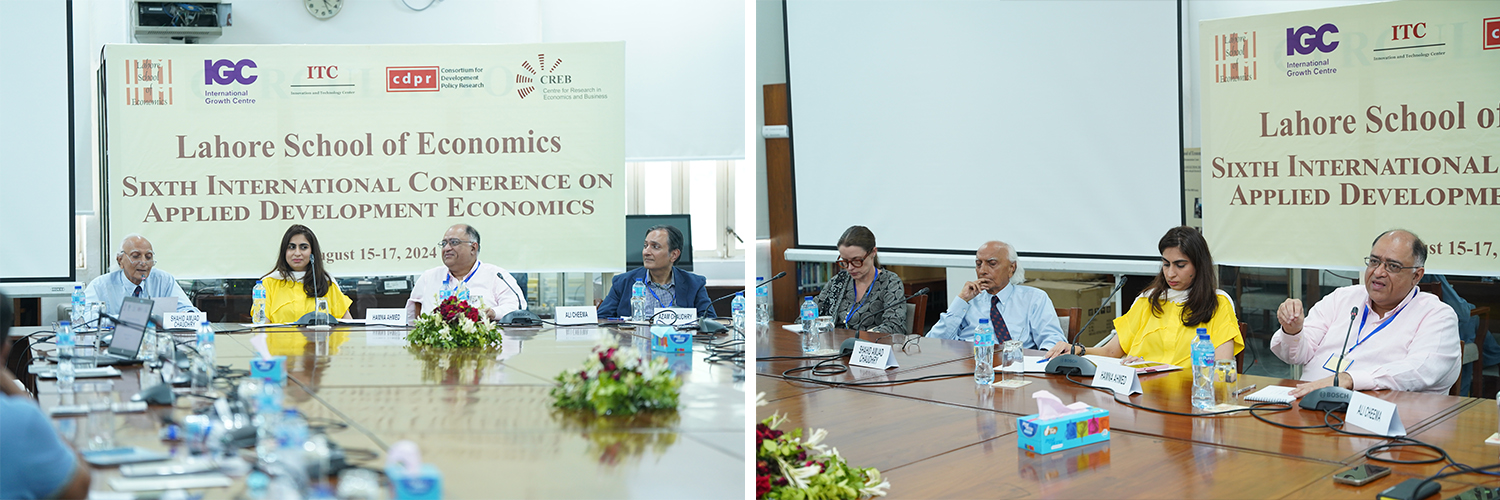
Dr. Ali Cheema, Vice Chancellor, LUMS, and co-founder of the Centre for Economic Research in Pakistan (CERP), featured as a panellist at the closing session of the conference on August 17, leading a round-table discussion on governance, productivity, and growth in Pakistan. His fellow panellists included Dr. Shahid Amjad Chaudhry, Professor of Economics and Rector, LSE; Dr. Adrienne Lucas, Professor and Chair, Department of Economics, Lerner College of Business and Economics, University of Delaware; Dr. Azam Chaudhry, Professor, Dean and Head of Department, Faculty of Economics, LSE; and Dr. Naved Hamid, Director CREB. The panel was moderated by Dr. Hamna Ahmad, Associate Professor of Economics at LSE and Research Fellow at CREB.

The conference opened with Dr. Cheema identifying gaps in the local governance system in Pakistan, in relation to wider concerns of growth and development. He outlined the role of human capital, connectivity, and fiscal mechanisms in developing effective economic policies, with special emphasis on the need for cohesion and adherence to policies within an administrative framework.
“Pakistan has the notorious distinction of introducing a very large number of local government reforms over the last 30 years but failing to enforce them,” he pointed out, adding that ineffective local governance negatively impacts significant areas of public interest like health and education.
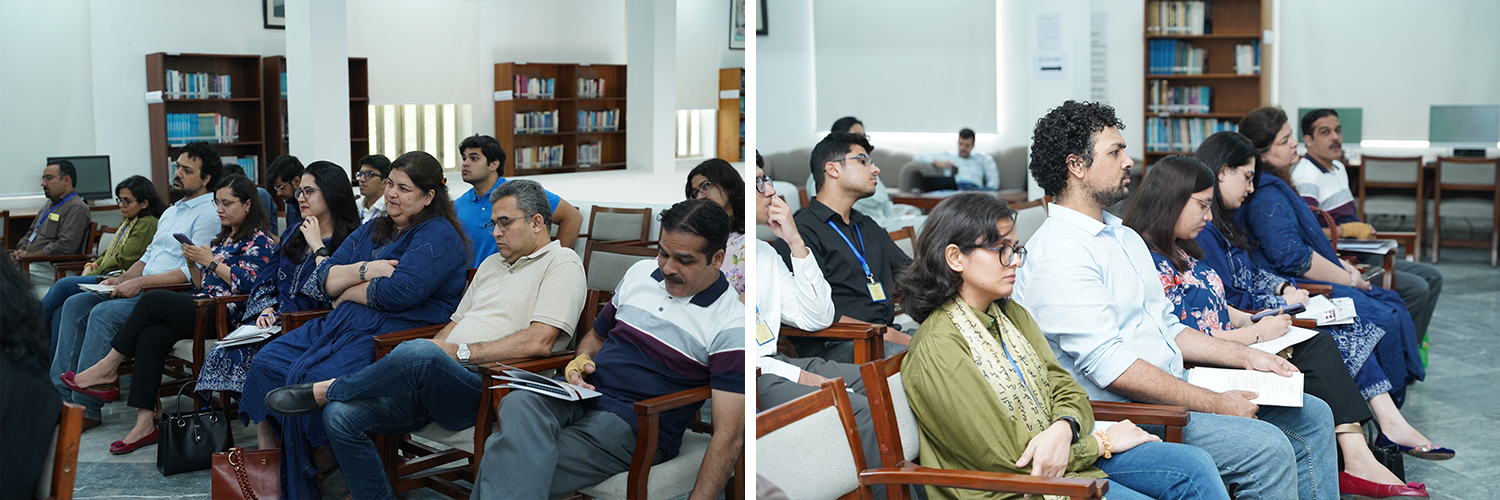
The panel went on to discuss the issue of the government extracting money from citizens without effectively investing it in public services, debating the taxation policies in Pakistan and identifying bureaucratic overregulation as a barrier towards the non-commercial establishment of public interest infrastructure like hospitals and educational institutions.
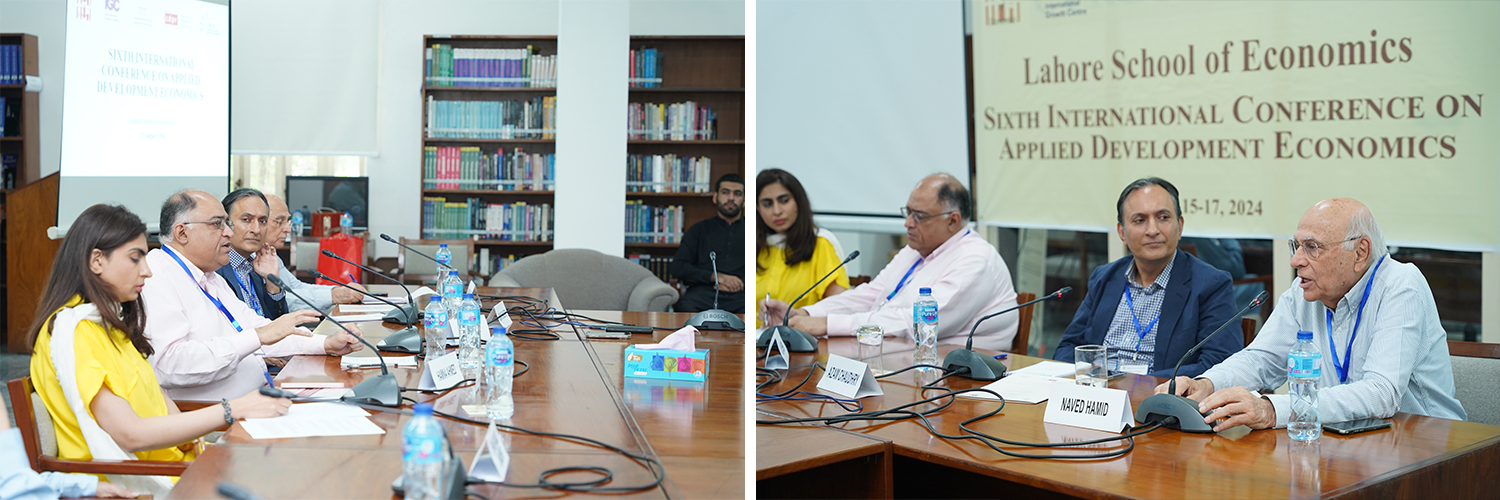
The discussion emphasised the responsibility of an effective local government to provide public services like health, education, and transport, noting that political instability contributes to the ineffectiveness of governance systems in Pakistan. The panel agreed that macroeconomic mismanagement in Pakistan has led to the development of an absolute lack of trust within the population, with the lack of exports and the increase in national debt greatly impacting domestic industries.
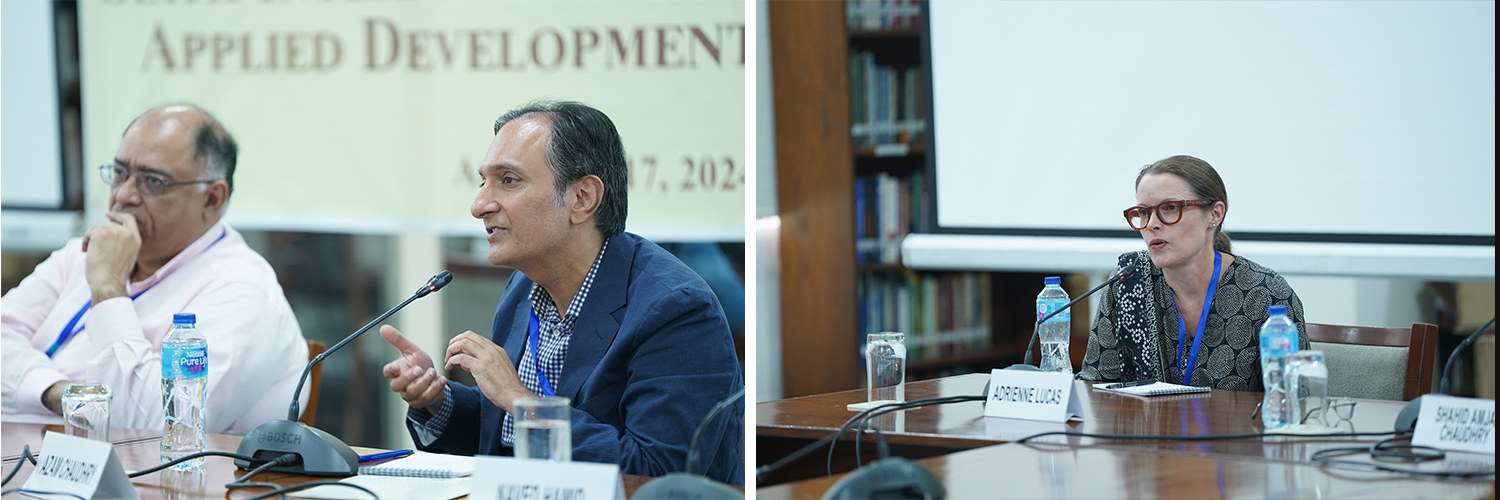
The importance of evidence-based policies was stressed by the panel, with a focus on industrial policies that create productive jobs for the public as well as goods and services that can be imported. It was also urged that Pakistan’s industrial policy would benefit from a focus towards renewable resources.
The last segment of the conference centred on the importance of female participation in the economy, with the panellists noting that women in Pakistan are often held back from employment, despite the shrinking of the gender gap in education, due to societal norms and structural constraints.
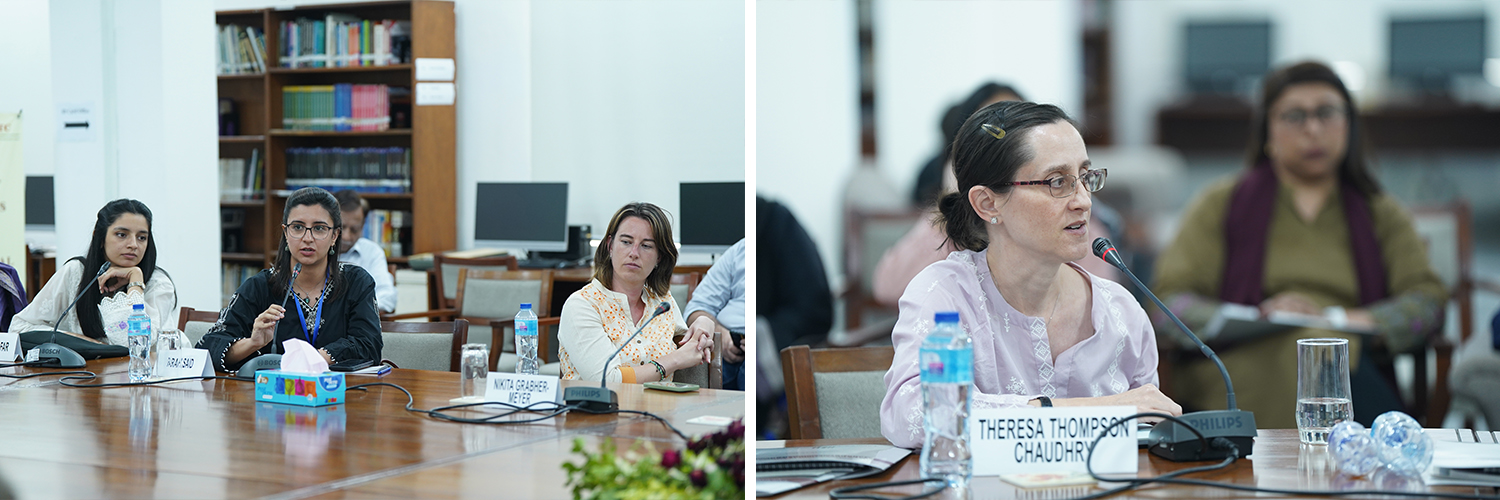
Dr. Cheema identified safety, mobility, and flexibility as three main factors that impact women’s participation in the labour force. “The feminisation of the state is crucial,” he said, stating that women must have greater representation in state institutions like the police to address pressing concerns like increasing gender-based violence against women in Pakistan.
“It’s not like women don’t have agency in Pakistan,” he stated. “They have historically fought back very hard, and they are still fighting. Women are at the forefront of a very progressive Pakistan.”
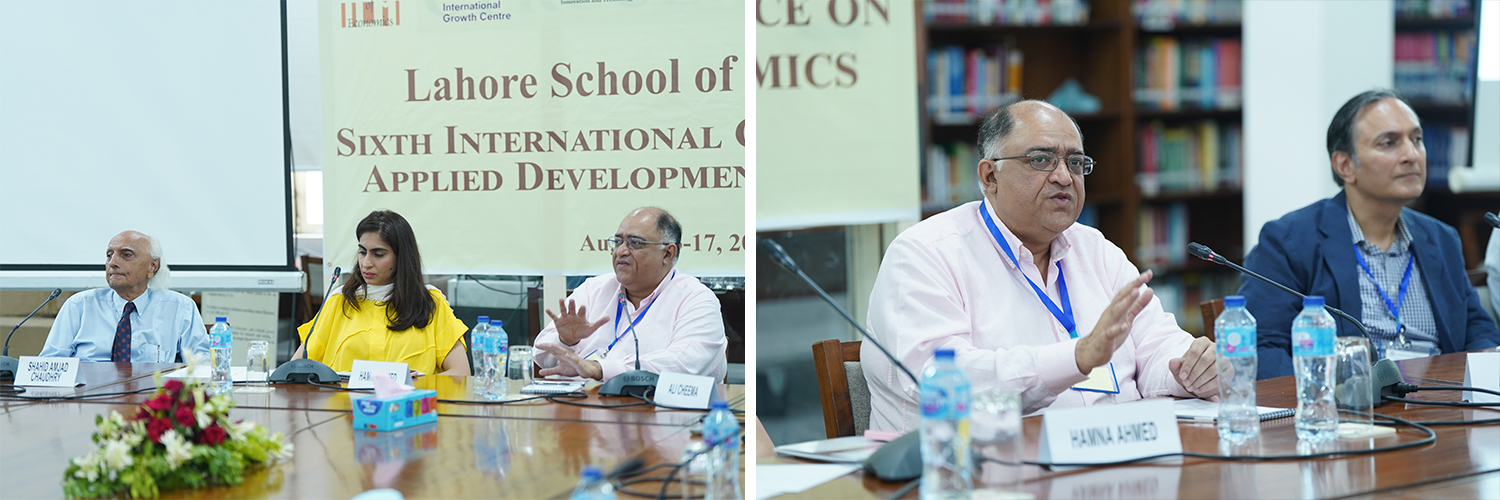
He emphasised that the structural constraints that prevent women from the choice of participating in the workforce should be addressed through policies and public services that can enable them, such as safe and accessible public transport, subsidised childcare facilities, and flexible working conditions.
Dr. Cheema observed that in the absence of public services to cater to women’s concerns, they are dependent on private solutions; most workplaces hesitate to bear the cost of these solutions to accommodate female employees. He noted that private organisations that choose to bear these costs, like LUMS and LSE, are driven by a conscious and deliberate mission towards gender equity. However, he added, it is the responsibility of the government to introduce and enforce policies that enable women’s participation in the economy and contribute towards Pakistan’s continued growth.
